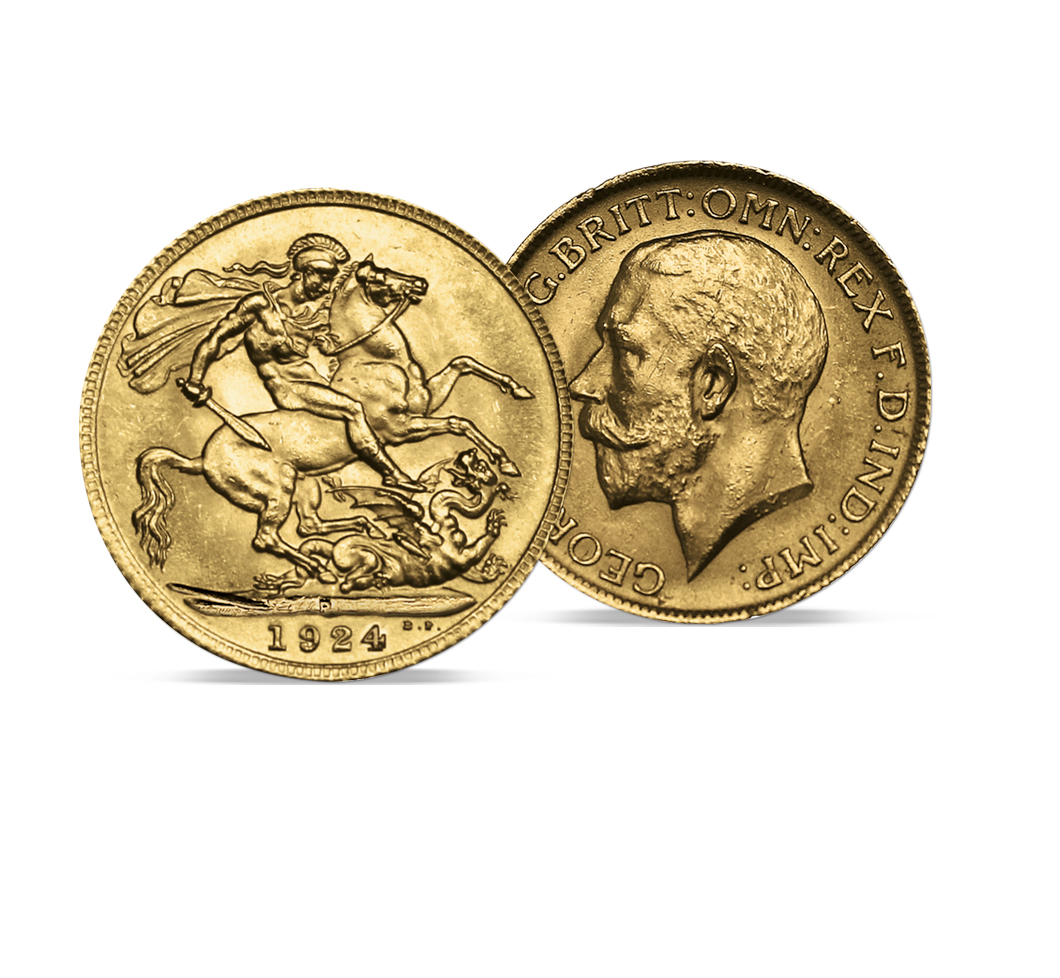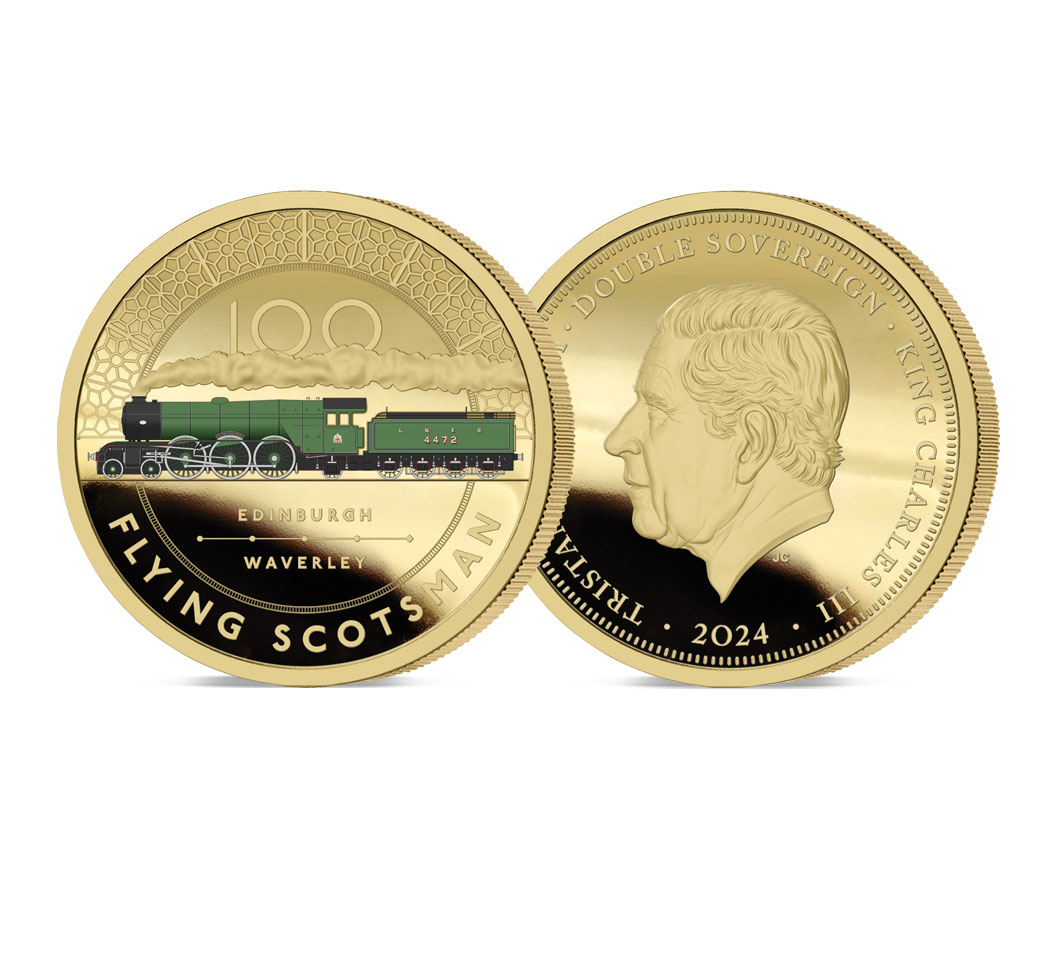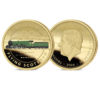Description
Flying Scotsman is the most famous steam locomotive in the world. This icon of British engineering was built at the Doncaster Works and delivered into service in 1923. However, its true fame began in 1924 when it was put on display at the British Empire Exhibition and was given the number 4472 and, importantly, the name ‘Flying Scotsman’.
It began the first ever regular non-stop service from London to Edinburgh in 1928 and went on to become the first locomotive in the U.K. to officially reach a speed of 100 mph. With its dashing apple green livery and sleek exterior, it was the shining star of the LNER and all along its route, people would watch in wonder as it thundered past. Now, for the 100th anniversary of the naming of Flying Scotsman 4472, a commemorative gold double sovereign has been minted featuring a design that is not only struck onto the coin, but is then overlaid with colour to accentuate this iconic locomotive.
- Despite its legendary status, Flying Scotsman has never appeared on a gold double sovereign coin before. This year’s centenary has brought about the minting of the first sovereign coins ever to feature this iconic locomotive
- The design features a side view of Flying Scotsman, with a large ‘100’ above and a pattern inspired by the glazed roof dome at Edinburgh Waverley Station, the northern terminus of the Flying Scotsman route
- To further enhance the design, the image of Flying Scotsman is struck onto the coin and is then colour-overlaid with the 1924 livery in green, black and red, displaying its famous number ‘4472’
- Only 149 of these new gold coins have been produced
The first gold double sovereign ever to feature Britain’s most famous locomotive – the legendary Flying Scotsman!
Flying Scotsman has held a special place in the nation’s heart since it was unveiled. One of the LNER’s powerful Class A1 “Pacific” locomotives, at almost 100 tons it was designed to haul express passenger services at speed. After its record-breaking 100 mph run in 1934, it endured World War Two in black livery, underwent nationalisation in 1948 and was finally retired in 1963, as diesel inevitably began replacing steam.
Such was the admiration for Sir Nigel Gresley’s much beloved locomotive that thereafter it was bought privately by a succession of wealthy enthusiasts, who between them kept the engine running at home and overseas – during which time Flying Scotsman toured America and Australia.
Ultimately, in 2004 the National Railway Museum spearheaded a successful campaign to save the locomotive for the nation and Flying Scotsman is now part of the museum collection, spending some of its time as a museum exhibit, and the rest on heritage runs, setting yet another record as the oldest mainline working locomotive still on Britain’s tracks.
Commemorative gold sovereigns are struck only for the most significant events and occasions of national importance. The 100th anniversary of Flying Scotsman 4472 is truly an historic occasion, and one that shows the enduring popularity and appeal of this most famous of all locomotives. The era of steam engines may be behind us but pride in engineering marvels like Flying Scotsman is still very much alive, which is why the first gold double sovereign coin ever to feature Flying Scotsman has been minted in this special anniversary year.
Struck in 22 carat gold and with the design overlaid in colour, this new double sovereign encapsulates the historical importance of Flying Scotsman and preserves it for generations to come.
100 years of Flying Scotsman number 4472
This world-first coin has been occasioned by the 100th anniversary of the 1924 naming of Flying Scotsman. This is also when it went on public display in the British Empire Exhibition in Wembley, where millions of visitors came to marvel at this handsome feat of engineering. Imagine getting up close to 100 tonnes of gleaming steel – it must have been an impressive sight!
Its appearance at the British Empire Exhibition made Flying Scotsman a household name. It quickly became LNER’s flagship engine and was chosen to advertise the London and North Eastern Railway’s non-stop service from London King’s Cross to Edinburgh Waverley. The route itself had been known as the Flying Scotsman since 1864, and the locomotive gained its name from the daily 10am east coast rail service from London Kings Cross to Edinburgh Waverley that had been operational since that time.
Authorised by Tristan Da Cunha and approved by the Foreign, Commonwealth and Development Office, Buckingham Palace and the National Railway Museum, it is a wonderful tribute to Britain’s most famous locomotive. It is likely to be keenly sought by collectors and rail enthusiasts alike.




